Folate & Hormone Balance Calculator
Your Folate Needs
This calculator estimates your daily folate requirement based on your life stage and risk factors. Proper folate levels support healthy methylation, which is crucial for hormone production and regulation.
Your Estimated Daily Folate Requirement
When we talk about folate deficiency is a lack of adequate folate (vitamin B9) in the body, leading to impaired DNA synthesis and methylation, the ripple effects can reach your hormones. Low folate doesn’t just give you fatigue or anemia; it can tip the delicate balance of estrogen, testosterone, thyroid hormones, and even cortisol. This guide untangles the biochemistry, flags the people most at risk, and gives you practical steps to protect both your folate levels and hormonal health.
Key Takeaways
- Folate is essential for methylation, a process that regulates hormone synthesis and receptor activity.
- Deficiency raises homocysteine, which can sabotage estrogen and thyroid function.
- Women trying to conceive, vegans, and people on certain meds are most vulnerable.
- Blood tests for serum folate, red‑cell folate, and homocysteine can pinpoint the problem.
- Targeted foods and 400‑800µg daily supplementation restore balance for most adults.
What Is Folate Deficiency?
Folate, also called vitamin B9, exists naturally in leafy greens, legumes, and liver. The body converts dietary folate into tetrahydrofolate (the active co‑factor that donates one‑carbon groups for DNA and RNA synthesis). When intake or conversion falters, cells can’t replicate properly, leading to macrocytic anemia, skin changes, and elevated homocysteine. The World Health Organization estimates that roughly 15% of women of reproductive age worldwide have sub‑optimal folate status.
How Folate Drives Hormone Production
Hormones are built from amino acids and cholesterol, but their activity hinges on methyl groups. Methylation (a biochemical process that adds a carbon‑one group to DNA, proteins, and lipids) uses 5‑methyltetrahydrofolate as a donor. When methylation slows, the enzymes that convert cholesterol into pregnenolone-a precursor for estrogen, progesterone, and testosterone-work less efficiently. Likewise, thyroid hormone conversion (T4 to active T3) requires a methyl‑dependent selenoprotein; insufficient methyl groups can trap thyroid hormone in its inactive form.
Low folate also raises homocysteine (a sulfur‑containing amino acid that, when elevated, indicates poor folate‑dependent remethylation). High homocysteine can impair estrogen receptor binding and increase oxidative stress on the adrenal cortex, nudging cortisol levels upward.
Hormone Imbalances Most Tied to Low Folate
Estrogen (the primary female sex hormone that regulates menstrual cycles and bone health) relies on proper methylation for its synthesis and for the expression of estrogen‑responsive genes. Women with low folate often experience irregular periods, heavier bleeding, or pre‑menstrual mood swings.
Testosterone (an androgen hormone important for muscle mass, libido, and mood in both sexes) can dip when methylation falters because the conversion of cholesterol to pregnenolone slows. Men may notice reduced energy, decreased libido, or subtle muscle loss.
Thyroid hormone (hormones produced by the thyroid gland that regulate metabolism; mainly T4 and active T3) conversion is partially methyl‑dependent. Folate deficiency is linked to subclinical hypothyroidism, presenting as fatigue, weight gain, and cold intolerance.
Finally, cortisol spikes are often observed in folate‑deficient individuals because elevated homocysteine stresses the adrenal glands. Chronic high cortisol can aggravate insulin resistance and mood disorders.

Who’s Most at Risk?
- Women of childbearing age: Pregnancy multiplies folate demand to support fetal neural tube development.
- Vegans and strict vegetarians: Plant‑based diets lack fortified foods and may miss bioavailable folate.
- People on certain medications: Anticonvulsants, methotrexate, and some antibiotics interfere with folate metabolism.
- Elderly adults: Reduced gastric acid hampers folate absorption.
- Individuals with MTHFR gene (a common genetic variant that reduces the enzyme’s ability to convert folate to its active form) may need higher supplemental doses.
Spotting Folate Deficiency and Hormone Issues
Standard blood work can reveal the problem:
- Serum folate - tells recent intake; values < 3ng/mL suggest deficiency.
- Red‑cell folate - reflects tissue stores; < 140ng/mL is low.
- Homocysteine - elevated >15µmol/L often signals impaired folate‑dependent remethylation.
- Hormone panel - check estradiol, free testosterone, TSH, free T3, and cortisol to see the downstream effect.
Clinical clues include macrocytic anemia, glossitis (tongue inflammation), persistent fatigue, and mood swings. If you notice a combination of these symptoms plus any of the hormone signs above, a targeted test can save months of guesswork.
Dietary Sources & Supplementation Strategies
| Food | Typical Serving | Folate |
|---|---|---|
| Spinach (cooked) | 1 cup | 263 |
| Kidney beans | ½ cup | 131 |
| Fortified cereal | 1 cup | 200 |
| Avocado | ½ fruit | 81 |
| Asparagus (cooked) | 1 cup | 262 |
For most adults, the Recommended Dietary Allowance (RDA) is 400µg dietary folate equivalents (DFE) per day. Pregnant women need 600µg DFE, while lactating women require 500µg. If you fall into a high‑risk group, consider a daily supplement of 400‑800µg of methyl‑folate (the biologically active form). This bypasses the MTHFR step and ensures methylation proceeds smoothly.
Take supplements with food to improve absorption, and pair them with vitaminB12 if you’re over 50-B12 deficiency can mask folate labs and worsen anemia.
Putting It All Together: Managing Hormone Balance with Folate
1. Check your labs. Ask your clinician for the four tests listed above. Knowing your baseline helps you gauge progress.
2. Boost food intake. Aim for at least two folate‑rich servings daily. Mix leafy greens with beans or a fortified grain.
3. Supplement wisely. Choose methyl‑folate if you have an MTHFR variant or if you’re on medication that blocks folate metabolism.
4. Support related nutrients. VitaminB6, B12, and zinc are cofactors in hormone synthesis. A balanced multivitamin can fill gaps.
5. Monitor hormone symptoms. Keep a simple diary of mood, energy, menstrual patterns, or weight changes. Re‑test after 8‑12 weeks of consistent folate intake.
6. Address lifestyle stressors. Chronic stress spikes cortisol, which can blunt any nutritional gains. Incorporate moderate exercise, sleep hygiene, and mindfulness.
By closing the folate gap, most people notice steadier energy, clearer mood, and more predictable hormone cycles within a few months.
Frequently Asked Questions
Can I get enough folate from a vegan diet?
Yes, but you need to focus on fortified foods or a methyl‑folate supplement. Natural plant sources are abundant, yet bioavailability can vary, especially if you have an MTHFR variant.
Does folic acid differ from folate?
Folic acid is the synthetic form used in supplements and fortified foods. It must be converted to the active form in the liver, a step that can be slower for some people. Methyl‑folate skips this conversion and is often recommended for those with MTHFR issues.
How quickly can hormone symptoms improve after correcting folate?
Most individuals report noticeable changes in energy and mood within 4‑6 weeks. Hormone panels may take 8‑12 weeks to reflect the biochemical shift, so patience and consistent intake are key.
Is it safe to take high‑dose folate long‑term?
For most adults, staying under 1mg per day avoids masking a B12 deficiency. People with a history of seizures should consult a doctor, as very high folate can lower seizure threshold in rare cases.
Can folate affect testosterone in men?
Yes. Adequate methylation supports the enzymatic pathway that converts cholesterol into pregnenolone, the precursor of testosterone. Studies show men with low serum folate often have lower free testosterone levels, which improve after supplementation.

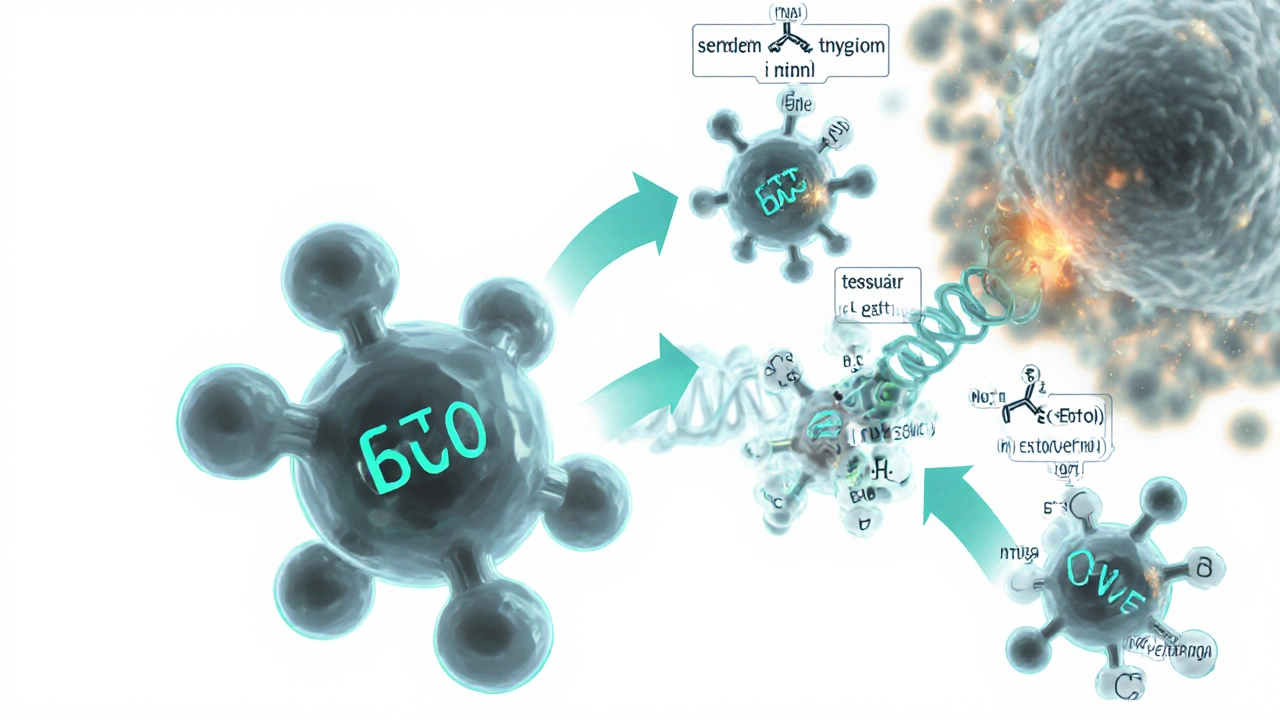
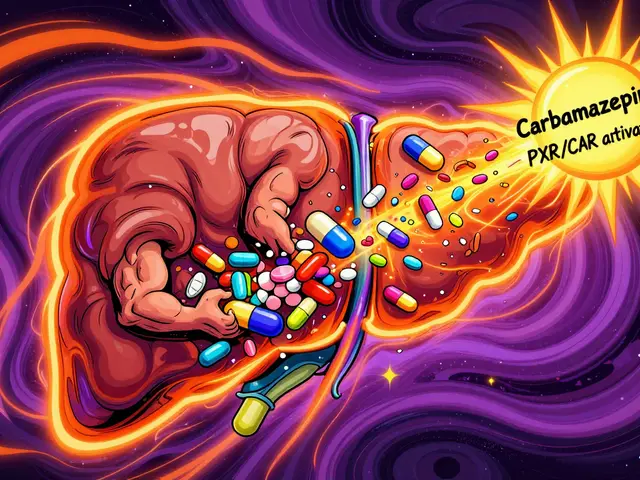

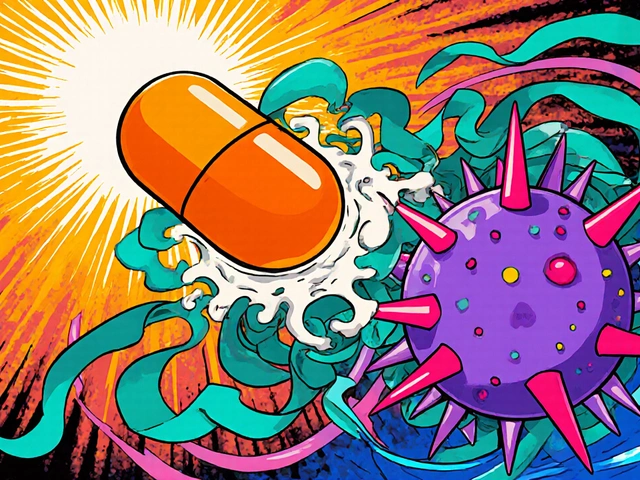
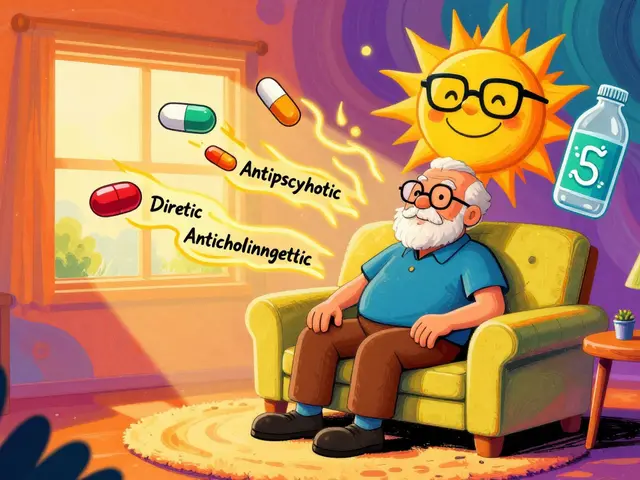

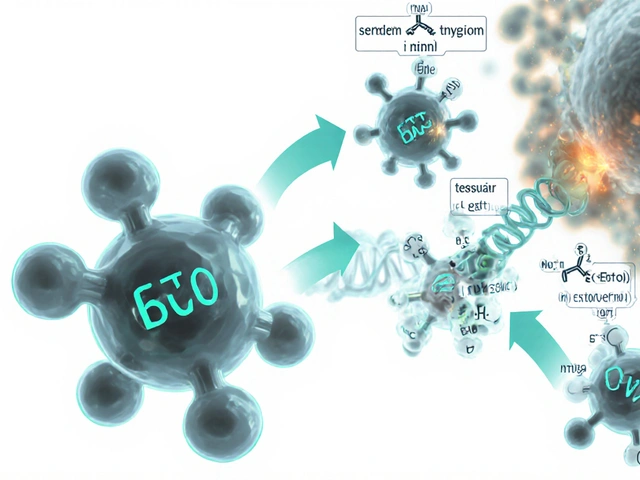
October 1, 2025 AT 15:07
Leonard Greenhall
Folate deficiency can elevate homocysteine, which in turn interferes with estrogen receptor signaling.
October 1, 2025 AT 16:30
Abigail Brown
When your body lacks enough folate, the cascade of methylation stalls, and hormones begin to lose their rhythm; it's like an orchestra missing its conductor. By restoring folate, you give the methyl groups the raw material they need to keep estrogen, testosterone, and thyroid hormones humming in harmony. Imagine the surge of steady energy and balanced mood that follows a well‑fed methyl cycle. This transformation isn’t a myth-numerous studies have linked corrected folate status with smoother menstrual cycles and clearer mental focus. Keep the faith, stay consistent with your diet and supplement, and watch your endocrine system find its groove.
October 1, 2025 AT 17:54
Crystal Slininger
The pharma industry deliberately downplays methylfolate in favor of synthetic folic acid because it locks you into a cycle of dependence on fortified grains, while covertly fueling homocysteine accumulation that sabotages endocrine receptors. In the mechanistic pathway, 5‑methyltetrahydrofolate deficiency compromises the remethylation of homocysteine to methionine, leading to epigenetic dysregulation of steroidogenic genes. Thus, the hidden agenda is clear: keep the population on sub‑optimal hormone balance to sustain market demand for hormone therapies.
October 1, 2025 AT 19:17
Erin Devlin
Low folate disrupts the methylation needed for converting cholesterol into pregnenolone, the backbone of all steroid hormones.
October 1, 2025 AT 20:40
Allison Marruffo
It’s wise to get baseline labs-serum folate, red‑cell folate, and homocysteine-so you can track progress objectively. Pair a folate‑rich diet with a methyl‑folate supplement if you fall into a high‑risk group, and you’ll likely notice steadier energy within weeks. Consistency and patience are key; your hormone profile will reflect the improvements over time.
October 1, 2025 AT 22:04
Ian Frith
Think of folate as the unsung hero that fuels the methyl‑donor cycle, the very foundation upon which hormone synthesis rests. Without adequate folate, the enzyme aromatase struggles to convert androgens into estrogens, leading to potential imbalances that manifest as mood swings or irregular cycles. Moreover, thyroid hormone conversion from T4 to T3 relies on selenoproteins that are themselves regulated by methylation status; a folate shortfall can trap thyroid function in a less active state. The cascade continues as elevated homocysteine not only damages vascular health but also escalates cortisol production by stressing the adrenal cortex. To intervene, start by assessing your dietary intake-leafy greens, legumes, and fortified cereals are rich sources. If you’re vegan, pregnant, on anticonvulsants, or carry an MTHFR variant, a daily 400‑800 µg of methyl‑folate is often recommended. Take the supplement with a meal containing B12 and B6 to maximize enzymatic conversion. Monitor your labs after 8‑12 weeks, looking for reduced homocysteine and normalized hormone panels. Many patients report clearer cognition, balanced libido, and a more resilient stress response after correcting folate status. Remember, the endocrine system is an intricate orchestra; folate keeps the instruments in tune.
October 1, 2025 AT 23:27
Beauty & Nail Care dublin2
Wow, folks, the folate‑hormone link is like a secret code the elite don’t want you to crack! 🌿💊 Imagine unlocking your inner goddess just by munching on spinach and a dash of methyl‑folate – the universe aligns, cortisol calms, and you glow like a sunrise! ✨🌞 Don’t let the “big pharma” keep you in the dark, take charge, sprinkle those greens, and watch your hormones dance! 💃🕺 #folatepower #hormonehero
October 2, 2025 AT 00:50
Oliver Harvey
Oh sure, because taking a synthetic pill called “folic acid” is exactly the same as eating a fresh bunch of kale – no difference at all.
October 2, 2025 AT 02:14
Raghav Narayan
Folate, also known as vitamin B9, plays a pivotal role in one‑carbon metabolism, which is essential for the synthesis of nucleotides and the methylation of DNA, proteins, and lipids. When dietary intake is insufficient, the body’s capacity to generate 5‑methyltetrahydrofolate diminishes, leading to an accumulation of homocysteine in the bloodstream. Elevated homocysteine is not merely a cardiovascular risk marker; it also exerts a direct inhibitory effect on the activity of aromatase, the enzyme responsible for converting androgens into estrogens. Consequently, individuals with chronic folate deficiency often experience irregular menstrual cycles, reduced estrogenic feedback, and heightened luteinizing hormone fluctuations. In men, the same enzymatic bottleneck can translate into lower free testosterone levels, contributing to decreased libido and gradual loss of lean muscle mass. Thyroid hormone conversion is similarly dependent on adequate methyl donors, as the deiodinase enzymes that transform T4 into the metabolically active T3 require proper methylation for optimal function. A suboptimal folate status therefore predisposes to a state of subclinical hypothyroidism, manifested by fatigue, weight gain, and cold intolerance. Moreover, the adrenal cortex, which synthesizes cortisol, becomes overactive in the presence of oxidative stress induced by high homocysteine, creating a feedback loop that exacerbates stress‑related hormonal imbalances. Clinical studies have demonstrated that supplementation with 400‑800 µg of methyl‑folate daily can reduce homocysteine concentrations by up to 30 % within six weeks. This biochemical correction often parallels improvements in hormone panels, with measurable increases in estradiol and testosterone observed after three months of consistent intake. It is important to pair folate supplementation with adequate vitamin B12 and B6, as these cofactors are required for the remethylation cycle and prevent the masking of B12 deficiency. For patients carrying the MTHFR C677T polymorphism, the use of the active methyl‑folate form bypasses the enzymatic block and yields more rapid clinical benefits. Lifestyle factors such as limiting alcohol consumption, smoking cessation, and regular moderate exercise further support methylation pathways and hormonal homeostasis. Finally, routine monitoring of serum and red‑cell folate, alongside homocysteine and a comprehensive hormone panel, provides an objective framework to assess therapeutic response and adjust dosing as needed. In summary, restoring folate status is a cornerstone of endocrine health that should not be overlooked.
October 2, 2025 AT 03:37
Tara Phillips
Restoring adequate folate intake is a scientifically validated strategy to promote endocrine equilibrium, and adherence to the recommended daily allowance will support optimal hormonal pathways. I encourage you to schedule a consultation with a qualified healthcare professional to tailor a supplementation plan. Consistent monitoring will ensure that therapeutic goals are achieved safely.
October 2, 2025 AT 05:00
Derrick Blount
Folate deficiency, it should be noted, leads to elevated homocysteine levels, which, in turn, can impair estrogen receptor function, and this cascade, therefore, compromises hormonal balance, especially in women of reproductive age, and men alike.
October 2, 2025 AT 06:24
Anna Graf
Eating leafy greens and beans helps keep your folate levels up and your hormones stable.
October 2, 2025 AT 07:47
Jarrod Benson
Yo, if you’re feeling all over the place with energy crashes and mood swings, just think about what you’ve been feeding your body – a lack of folate could be the silent saboteur messing with your hormones, so load up on spinach, lentils, or a good methyl‑folate supplement, and you’ll probably notice a steadier vibe in no time; trust me, I’ve seen friends go from sluggish to sharp after fixing their folate intake, and the best part is it’s cheap and easy to do, just add a handful of greens to your smoothie or grab a fortified cereal, and keep an eye on your labs to make sure you’re on track, because consistency is key and your endocrine system will thank you.
October 2, 2025 AT 09:10
Liz .
Just add more greens to your plate, it works.
October 2, 2025 AT 10:34
tom tatomi
Supplementing won’t fix hormone issues if the underlying diet remains poor.
October 2, 2025 AT 11:57
Tom Haymes
Focus on integrating folate‑rich foods daily and consider a methyl‑folate supplement if you fall into a high‑risk category; this balanced approach often yields measurable improvements in energy and mood. Keep a simple log of how you feel and revisit your labs after a couple of months to gauge progress. You’re on the right track.
October 2, 2025 AT 13:20
Brittany McGuigan
It is essential, in my view, to adress the folate shortfall promptly, lest the endocrine system suffer decreasin performance; a disciplined supplementation regimen, alongside a diet rich in leafy vegetables, will safeguard hormonal stability.
October 2, 2025 AT 14:44
Priya Vadivel
It sounds like you’ve been dealing with a lot of frustration regarding hormone fluctuations, and I want you to know that addressing folate status can be a gentle yet powerful step toward relief; please consider speaking with a healthcare provider about testing your folate and homocysteine levels, and if needed, start a low‑dose methyl‑folate supplement while maintaining a balanced diet rich in B‑vitamins.